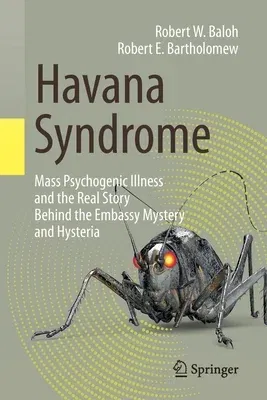It is one of the most extraordinary cases in the history of science: the
mating calls of insects were mistaken for a "sonic weapon" that led to a
major diplomatic row. Since August 2017, the world media has been
absorbed in the "attack" on diplomats from the American and Canadian
Embassies in Cuba. While physicians treating victims have described it
as a novel and perplexing condition that involves an array of complaints
including brain damage, the authors present compelling evidence that
mass psychogenic illness was the cause of "Havana Syndrome."
This mysterious condition that has baffled experts is explored across
11-chapters which offer insights by a prominent neurologist and an
expert on psychogenic illness. A lively and enthralling read, the
authors explore the history of similar scares from the 18th century
belief that sounds from certain musical instruments were harmful to
human health, to 19th century cases of "telephone shock," and more
contemporary panics involving people living near wind turbines that have
been tied to a variety of health complaints. The authors provide dozens
of examples of kindred episodes of mass hysteria throughout history, in
addition to psychosomatic conditions and even the role of insects in
triggering outbreaks.
Havana Syndrome: Mass Psychogenic Illness and the Real Story Behind
the Embassy Mystery and Hysteria is a scientific detective story and a
case study in the social construction of mass psychogenic illness.

